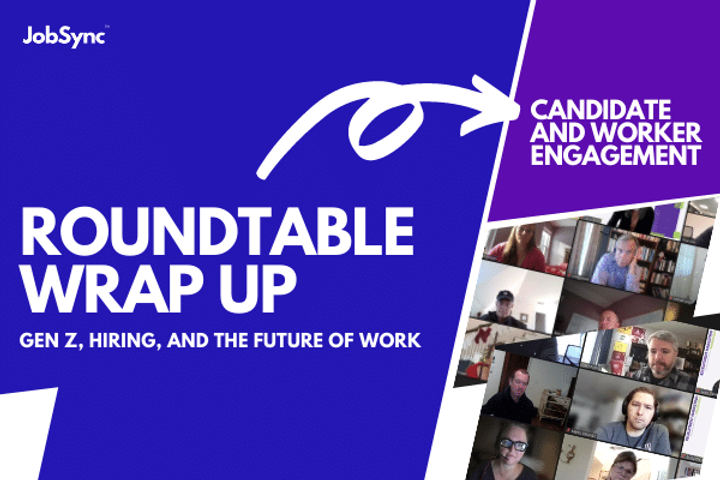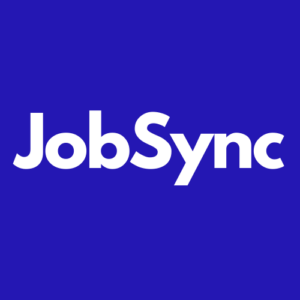
Prior to getting this roundtable started, we asked two simple questions via LinkedIn polls: What are the positive and negative aspects of hiring and working with Gen Z? The anger and vitriol that was spewed was nearly shocking. How dare we articulate what legions of hiring managers are thinking – Gen Z doesn’t know how to do the basic things that we grew up knowing, right?
Like:
How to cash a check
How to cook their own dinner
How to do their own laundry
How to look something up in an encyclopedia
And then our guest, Heidi Pancake says, ‘I think we are saying the same thing’ and Steven Rothberg of College Recruiter says ‘No, I don’t think we are’, that’s when you know things are about to get good.
The masks were off, the mics and the gloves were on and an incredible and formatable discussion ensued.
Maybe the question we asked the market should have been ‘Does Gen Z need these dying skills that previous generations have valued?’ and more importantly, ‘Is knowledge additive or replacive?’
The harsh reality is every generation bemoans the generations that come after them. You have heard all the standard quips: They are lazy, they don’t invest the time to learn, they don’t put in their dues, they expect everything on a silver platter, blah blah blah. When it comes to hiring and retaining top talent the first common theme among the attendees at our recent roundtable is ignorance. What past generations once relished in, knowing how to do it all, we’re finding that the newbies of the workforce aren’t being taught nearly as much.
Are we ignorant when it comes to hiring Gen Z?
“Important” things like home economics and shop class don’t exist anymore. Nobody is taught how to balance a checkbook or cash a check. Cooking, cleaning, and laundry aren’t top of mind. Kids aren’t getting the education at home and at school they used to.
And if you weren’t paying attention to how the conversation evolved, you might have thought this was another new generation bashing session – but what came out was something far more interesting.
The most prominent theme is that older generations’ expectations are unrealistic – they want the younger generations to both ‘put in their dues’ by staying until 8 or 9 at night, but also be ‘always on, all night long, on weekends and on vacations’. In practice, how you ‘put in your dues’ has changed and it’s unfair to expect younger generations to do both (late nights and always on) when that was never the expectation for Gen X or Boomers. Z can’t cash a check, but X can’t figure out Venmo. Which is more likely the skill needed in the future?
Steven Rothberg of College Recruiter added this vignette, “My great grandfather owned a livery stable. His kids, their kids, and their kids never learned how to shoe a horse. It wasn’t because they were incompetent. It was because that skill wasn’t important for them to succeed personally or professionally. Just because something was or is important to me, does not mean that it should be important to my kids.”
The punchline is that skills come and go, retaining the old ways isn’t always the best option for society as it moves forward.
What used to take days in the work environment, now takes moments. Younger generations just do more, accomplish more, get more done. Each work task has been automated, simplified, data enhanced and available on a mobile device. The amount of ‘work’ an entry level person gets done today is exponentially more than what was done by a single person even twenty years ago. The skills needed to manage this volume, through these means, are far different than the skills needed to follow a set of instructions on repeat. The required skills look different and practically speaking are applied differently.
What are the challenges when it comes to hiring and training Gen Z?
But Generation Z faces a big challenge, the hiring managers of today are X and Millennials – extroverts of literally another era, who value their own experiences and upbringings. They don’t know how to interview for these new skills and adaptive learning styles. The older generations need to face a reckoning – the skills of the past generations don’t all have the same value they once did. And what made a great candidate twenty years ago, isn’t the same measuring stick we should be using today. Dianne Doyle, in her LinkedIn post summarizing this roundtable commented, “We must adapt to Gen Z. It’s much easier to change 2 million managers than to change an entire generation.”
And to be fair, an entire generation shouldn’t change. Today’s entry-levels are tomorrow’s CEOs. People don’t come into their first jobs knowing how to do everything, but if they come in able to learn to do all of the things the job requires them to do, then you have a great candidate.
Hire them. Invest in them. Teach them. They want to learn.
One of the most defining characteristics of this new generation is not all the qualities bemoaned, but a new expectation on what quid pro quo means. A paycheck for work isn’t good enough. This generation wants support. They want coaches, they want to learn. And as hiring managers we need to find the candidates we can teach and help grow. A career is part of the overall hiring package and if you aren’t offering a path to that, you will lose to the more progressive companies.
And they want fairness. Accountability is the favorite word of every organization, but cultures where productivity trumps accountability, where toxic behavior is permitted if you hit your number, goals, etc., is a culture of top down organizations – older generations where employees are grateful for the job, with no expectations outside of that paycheck.
“When will companies begin to manage people [like] in a gig economy? Fiverr – Upwork – Uber. I do my job. I get paid, I get feedback immediately. Corporate America isn’t clear about expectations. Pay is delayed. And feedback is from months away to never.” asked Ira Wolfe.
Carrie Darney contributed, “Setting expectations is one thing – one of the key things we were missing was setting timelines.”
Adam Rose added, “Accountability is easy if it comes from the top down but going upstream is hard and sometimes difficult for upper leaders to hear.”
As a management group, we are poor at setting expectations, poor at communicating accountability and poor at setting practical timelines and therefore poor at getting things done.
So what makes us so confident in our ability to select, onboard and train the next generation of workers (the same ones who are also our children with whom we forgot to teach how to do laundry, write in cursive and feed themselves)? While being busy blaming the next generation, there has been little accountability placed at the feet of themselves – the same people raising the next generation.
Which begs the question, how, as recruiters, do we prepare these candidates for their interviews? Do we prep them? Should we prep them? Do we offer them support on how to navigate a wholly unnatural process (interviewing) to help show their best qualities. Or is it best to throw all of the candidates into the deep end and let them figure out how to navigate the pool? And on the other side of the equation, how do we prepare hiring managers – what training and coaching do they need?
That exact question led us to next month’s roundtable discussion with Jo Weech.
Join us on February 10th for our next roundtable where we explore these precise questions with Jo Weech from Clements Worldwide as our special guest host.

